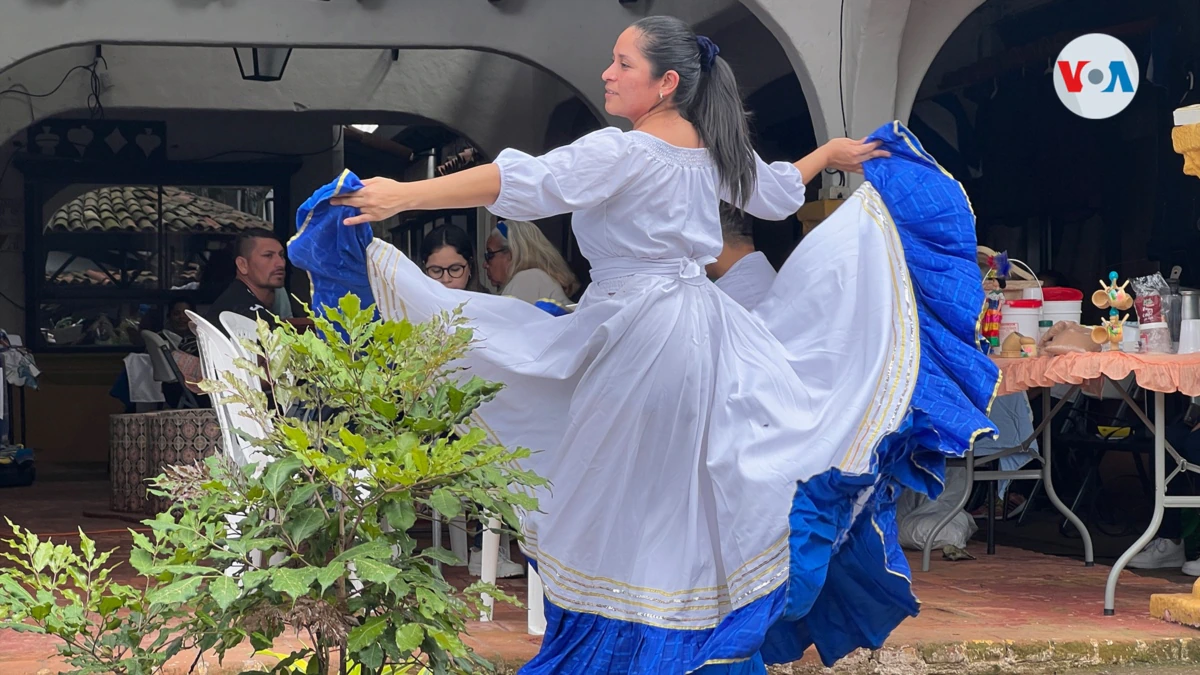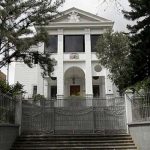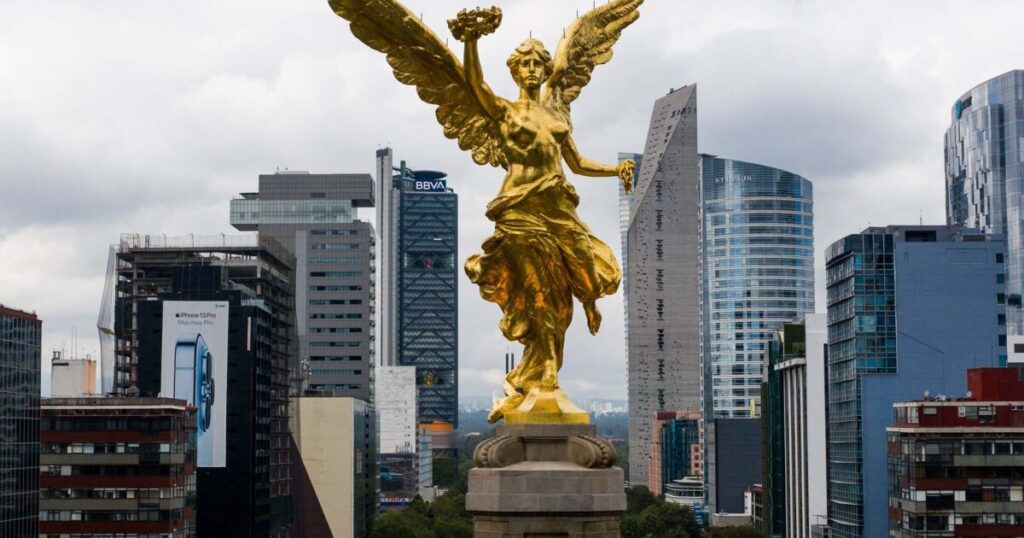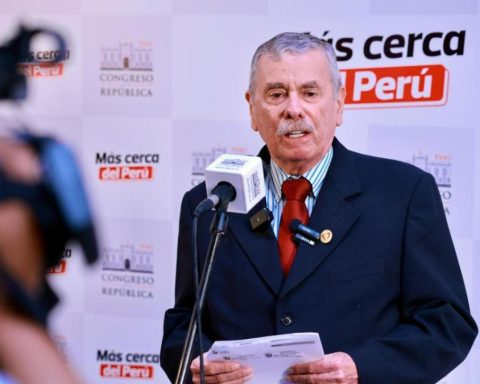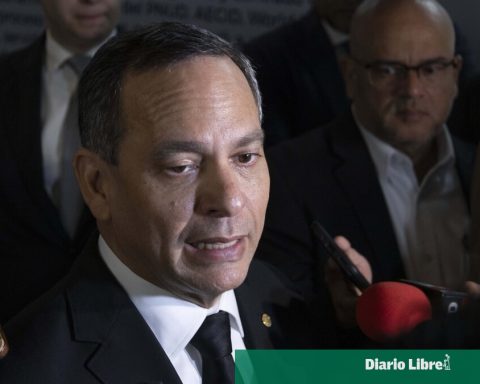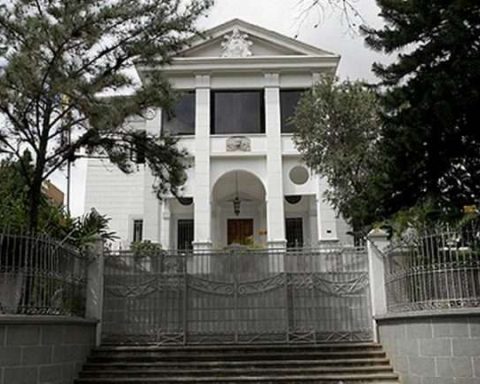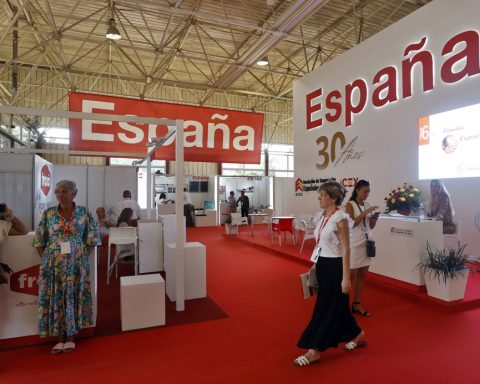The folk music and typical dances of Nicaragua revived deeply rooted feelings in América Barrios, a Nicaraguan living in Costa Rica for 20 years who recently attended a gastronomic fair organized by exiles.
The economic situation and other external factors, such as the war in Ukraine, have made life in Costa Rica even more expensive, which is why the exiles have chosen to set up these so-called gastronomic fairs for various purposes: to obtain economic income, but also to keep the Nicaraguan traditions.
“I think that as Nicaraguans we have a duty to collaborate and support our compatriots, that’s why when there are fairs I come to buy because that’s the way I have to help them,” he told the voice of america the young América Barrios, originally from Ometepey with two decades residing in Costa Rica.
“When we buy from someone we are helping them pay their rent. It is not just buying, it is that we are collaborating with them, we are doing something to change the reality of their lives here in this country,” he adds.
At the fairs, Nicaraguans sell products that range from the price of 1,000 colones (1.50 dollars), such as soft drinks such as cocoa and chicha, to fritangas and vigorón, which are around 5,000 colones (7.46 dollars).
These types of events take place at least twice a month at various points in San José, the capital of Costa Rica. The El Pueblo Shopping Center was the venue yesterday, Sunday, for the “Verbena de los Pueblos” fair. The site is among those that charge Nicaraguans the least to set up the fair.
Gema Elizabeth Rayos Jirón is originally from the city of Masaya, one of the main strongholds of the protests against Ortega in 2018.
Rayos left the country that same year and her extensive cultural knowledge, including the traditional dances of her hometown, known as the “City of Flowers”, motivated her to participate in the fairs.
Wearing a traditional blue and white suit, which characterizes the Nicaraguan flag, she dances traditional dances.
“What we try to do is make this a little piece of Nicaragua, at least once a month. I know that there are many people who are not even exiles, they are residents who have not been to Nicaragua for years, but they miss the folklore, the music, the food so much. So, this is part of rescuing our land a little, of having it here, a little piece of Nicaragua,” said Rayos Jirón.
He lamented that the colors of his costume in Nicaragua have been criminalized and “although in the country” he could dance, “these colors cannot be used.”
“You can dance with the colors and costumes you want, but you put on a blue and white suit and they take you prisoner. It is illogical that they prevent us from dancing with the colors of our flag, which is what has represented us forever. So that’s why we resist and that’s why our blue and white suit, in a way, represents being able to be free at some point and be able to do this in our land.”
Integrate Venezuelans, Cubans and Salvadorans to the fairs
César Gutiérrez, coordinator of the “Verbena de los pueblo” fair, has the idea of integrating other groups of refugees from other countries, such as Venezuelans, Cubans and Salvadorans.
“Currently a Salvadoran is participating and we are going to coordinate with Venezuelan, Cuban and other nationality entrepreneurs so that the general public that lives here in Costa Rica can have a variety of cultures, because we are not only going to offer, let’s say, gastronomy, but also art and crafts”, explained Gutiérrez to the VOA.
In the same way, he commented that with this effort they intend to “keep the culture and traditions alive, mainly of the Nicaraguan people, but we also make room for other peoples who are exiled here in Costa Rica so that they can project themselves with their gastronomy and also project themselves with their culture.”
More than 100,000 Nicaraguans left the country as of 2018 for security reasons and chose Costa Rica as their destination, according to official data from Migration and Immigration.
And the number continues to rise. Between January and May 2022 alone, a total of 32,593 Nicaraguans applied for refuge in Costa Rica
The number is equivalent to 91% of the total requests of this type in that country during that period, revealed the person in charge of the Refugee Unit of the General Directorate of Migration and Aliens of Costa Rica, Esther Núñez at an event on the occasion of World Day of the refugee.
Connect with the Voice of America! Subscribe to our channel Youtube and turn on notifications, or follow us on social media: Facebook, Twitter and Instagram.
